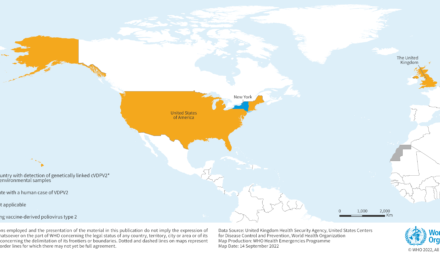A recent comprehensive review published in BMC Medicine underscores the significant risks that autoimmune conditions pose to pregnant women, linking them to a range of adverse pregnancy outcomes. The study suggests that environmental factors such as lifestyle, diet, infections, and medications may exacerbate the effects of these conditions during pregnancy, which may fluctuate, improve, worsen, or remain consistent as the pregnancy progresses.
The study reveals that autoimmune diseases complicate pregnancies by allowing maternal antibodies to cross into the fetal system, potentially impacting critical fetal development, including heart formation. This finding highlights the need for tailored and multidisciplinary care in managing pregnancies affected by autoimmune disorders.
The research team, which analyzed 32 records encompassing 709 primary studies, utilized the Joanna Briggs Institute framework and the AMSTAR 2 tool to assess the quality of evidence. Their investigation revealed concerning risks associated with several autoimmune conditions:
- Inflammatory Bowel Disease (IBD): Patients with IBD were found to be at an increased risk for ectopic pregnancies.
- Systemic Lupus Erythematosus (SLE) and Sjögren’s Syndrome: These conditions were linked to higher rates of miscarriage among women.
- Type 1 Diabetes Mellitus (T1DM), Psoriasis, and Psoriatic Arthritis: These diseases were associated with an increased likelihood of gestational hypertension during pregnancy.
Further findings indicated that systemic sclerosis and celiac disease were linked to a higher risk of intrauterine growth restriction (IUGR), delivering small for gestational age (SGA) infants, and stillbirths. Babies born to women with SLE and systemic sclerosis also had a greater incidence of low birth weight. Moreover, neonatal mortality was significantly higher among women with SLE, T1DM, and Sjögren’s syndrome.
The review concludes with a call for more research to provide standardized, evidence-based recommendations to guide healthcare professionals in managing pregnancies in women with autoimmune conditions. The findings emphasize the importance of early interventions, vigilant monitoring, and a comprehensive care approach to mitigate the risks of adverse pregnancy outcomes and improve the health of both mothers and their babies.
As autoimmune diseases affect an increasing number of women of childbearing age, these findings highlight the critical need for further investigation into how these conditions interact with pregnancy and for healthcare professionals to remain informed about the risks and management strategies to support women during this pivotal time.
(Source: News-Medical.net)












